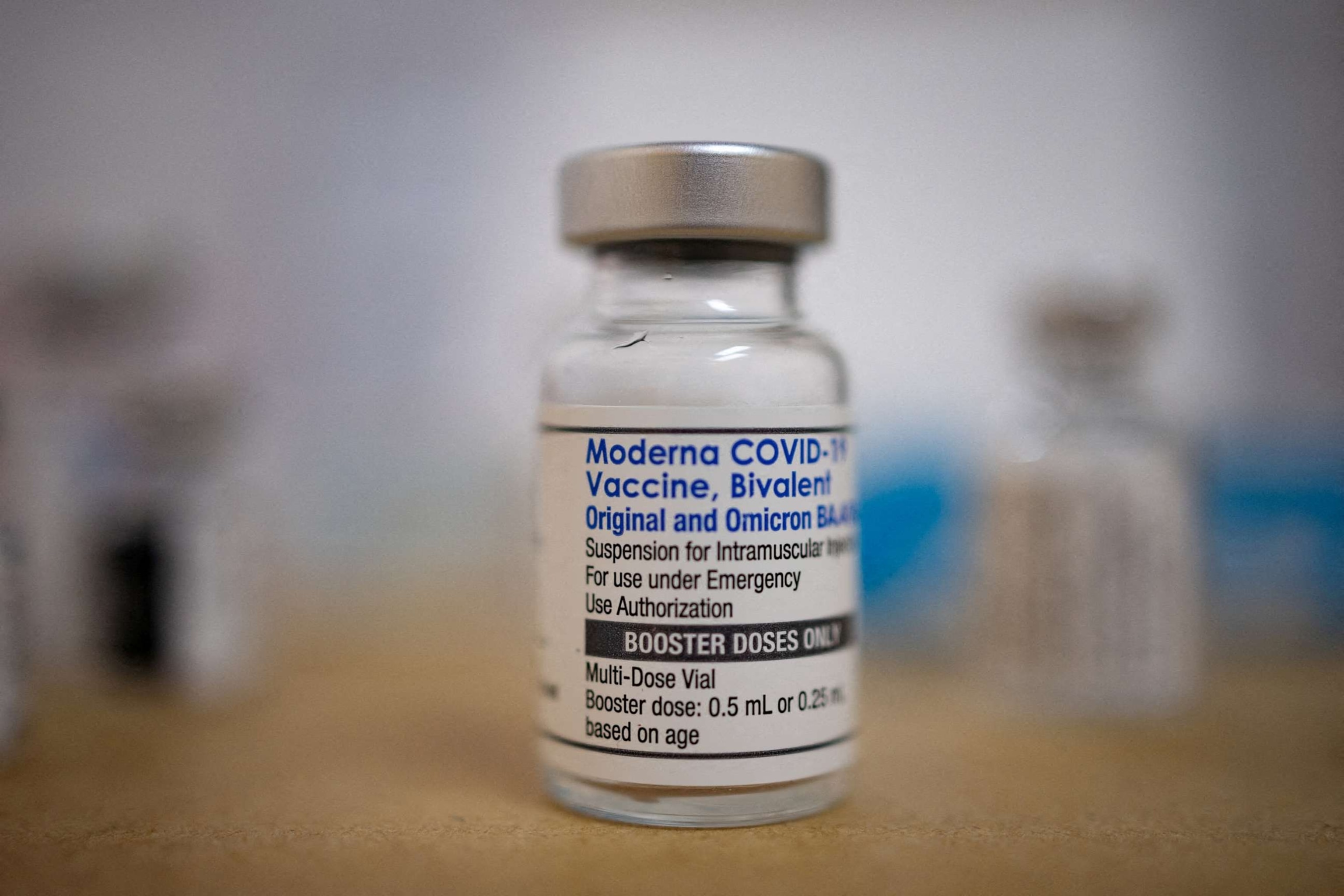COVID hospitalizations increase for 7th consecutive week but new boosters could help
New data shows the boosters protect against variants, including BA.28.86
COVID-19 hospitalizations are continuing to rise in the United States but there is hope that the uptick could be stemmed with the new boosters.
Hospitalizations increased 15.7% for the week ending Aug. 26 from 15,050 to 17,418, according to data updated Monday by the Centers for Disease Control and Prevention.
These are similar to levels seen in late March of this year and it marks the seventh consecutive week that hospitalizations have increased.
However, hospitalizations remain relatively low compared to other points during the pandemic. During the peak of omicron, the week of Jan. 15, 2022, there were 150,674 hospitalizations.
Additionally, during the same week over the past three years, weekly hospitalizations have sat at 28,209 in 2020, 85,785 in 2021 and 36,922 in 2022.
What's more, the overwhelming majority of U.S. are reporting fewer than 10 new COVID hospital admissions per 100,000 people.

Dr. Cameron Wolfe, a professor of medicine in the division of infectious diseases at Duke University School of Medicine, said there has been an uptick at his hospital -- 50 to 60 COVID patients compared to 20 to 30 earlier in the summer -- but there are fewer people who are in the intensive care unit compared to years prior.
"So, I think whilst the numbers have gone up, the intensity is not quite there like it had been in the past," he told ABC News. "We'll see what that looks like in a couple of weeks, but I don't see anything here that points to sort of an imminent or dramatic increase."
Wolfe added that if the trend reflects previous years, there will be a dip before another spike comes in December and January.
There may be hope that a potential winter wave will not be so severe due to the upcoming COVID booster, which is expected to be available as early as next week.
Recent data has indicated the shot could offer additional protection against currently circulating variants, most of which are related to XBB -- which is an offshoot of omicron -- and even the newer subvariant BA.2.86.
The updated COVID vaccine booster generated a nearly nine-fold increase in antibodies against BA.2.86, according to early results in a Moderna press release published Wednesday.
Pfizer told ABC News that "a recent preclinical study showed that our updated monovalent XBB 1.5 vaccine elicited a strong neutralizing antibody response against a number of Omicron variants, including EG.5.1 and BA.2.86."
It's a good sign considering the CDC recently warned the new variant "may be more capable of causing infection in people who have previously had COVID-19 or who have received COVID-19 vaccines."
Previous results from Moderna indicated the new booster offered additional protection against the subvariants EG.5 and FL.1.5.1, which are currently dominating in the U.S. and make up an estimated 36% of new cases, according to CDC data.
The updated booster also appears to protect against severe disease and death -- the most important metric, particularly for those who are elderly or immune compromised.

"This sort of release of a new booster in late September is actually really well timed because it gives people a good chance to get it ahead of what I would expect will be a wave coming again in January or February," Wolfe said. "I see no reason to think that that won't be here. It's been there for the last three winters."
He added, "If we've had the chance to kind of jack up at-risk patients' protection ahead of that, then that just seems perfectly logical."



